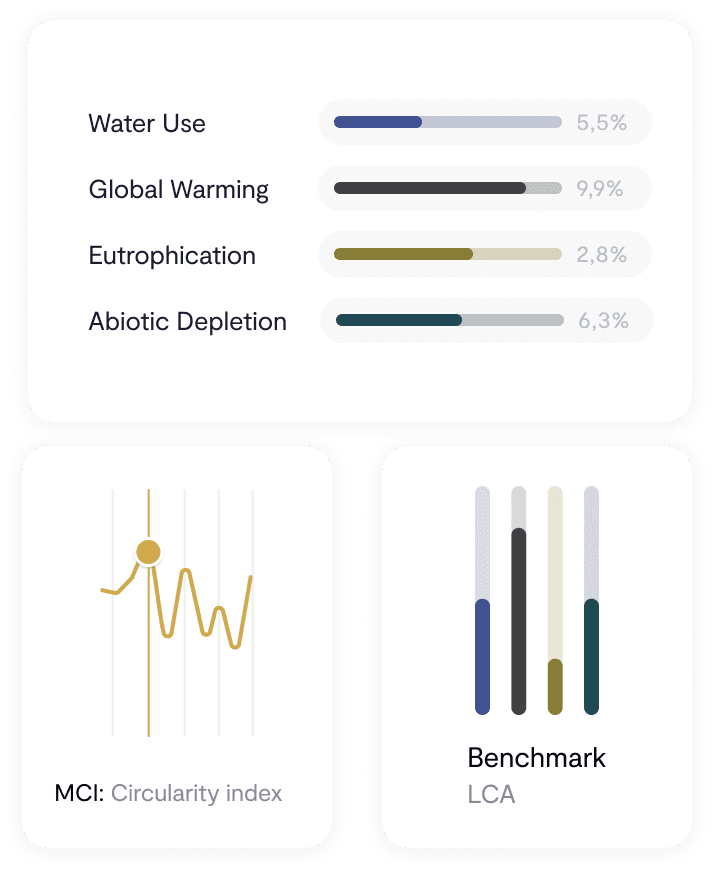The leading international sustainable fashion event, formerly known as Copenhagen Fashion Summit, has returned to its physical form this year under the rebranding of Global Fashion Summit. A name change that Global Fashion Agenda claims to have made to express the global perspective and reach of the event. For years, the now GFS has brought together great professionals from the fashion industry, visionaries, researchers, politicians, designers, ecologists, journalists and other prominent agents in the sector to discuss the most critical environmental, social and ethical problems facing the fashion industry. Let’s take a look at the strategic alliances that this event has raised for the shaping of a new era.
“‘Alliances for a New Era’ epitomizes our current climate – we are living in a time when the majority are ready and willing to evolve but we need to break down silos and pre-competitive barriers to enact truly pervasive change. Through this Summit, we are striving to enable impactful partnerships and drive progress on a greater scale since there are less than eight years to achieve the Sustainable Development Goals.”
Only through collective action will it be possible to achieve progress towards a more sustainable industry
The statements of Federica Marchionni, CEO of Global Fashion Agenda, are in line with the speech that we were able to see during the last Sourcing Journal Sustainability Summit. Despite the discrepancies that we can find between the different agents of the industry, there is a universal consensus in the textile sector, only through collective action will it be possible to achieve progress towards a more sustainable industry.
Through more than 100 different speakers, the program covered hot topics that ranged from the power of legislation in the declaration of environmental issues, how to scale circularity in the fashion industry, to the exhibition of the latest innovations in textile materials. Two days full of debate in which many of the professionals who stepped on the stage took the opportunity to present their latest advances in sustainability, including the great alliances with which they seek to join forces to achieve systemic change. These were some of the news that the Global Fashion Summit 2022 has left:
- GFA introduced the GFA Monitor, a new report that aims to guide textile sector leaders towards a net positive industry. It’s a guide focused on five essential fronts: respectful and secure work environments, better wage systems, resource stewardship, smart material choice and circular systems. To define the roadmap in each of these sections, GFA has turned to Higg and some of its partners such as the Fair Labor Association (FLA), the Ellen MacArthur Foundation, the Apparel Impact Institute and the Textile Exchange.
- The Global Fashion Agenda also took the opportunity to announce the launch of the Global Circular Fashion Forum (GCFF). A global initiative that will have the support of GIZ to accelerate and scale the recycling of post-industrial textile waste in manufacturing countries. The forum will bring together stakeholders to share knowledge and seek best practices in order to achieve a fair, scalable and long-term transition to a circular fashion industry. The GCFF builds on the Circular Fashion Partnership in Bangladesh that demonstrated the ability to scale the recycling of post-industrial textile waste to create new fabrics. Its goal will be to establish similar programs in other regions, starting in Vietnam and Cambodia.
- The Apparel Impact Institute (Aii), the organization committed to initiating and accelerating climate action and sustainability solutions in fashion, announced the main investors in its new Fashion Climate Fund, including Lululemon, H&M Group, H&M Foundation and The Schmidt Family Foundation. This $250 million fund will help decarbonize and modernize fashion industry supply chains by improving energy efficiency, using next-generation materials, scaling sustainable practices, and eliminating fossil fuels.
- Fashion Revolution launched its new “Good Clothes, Fair Pay” campaign, calling for legislation to urgently regulate living wages across the garment industry. Starting this summer, the collection of 1 million signatures from EU citizens will begin to promote this regulation. If it goes ahead, this new legislation will require all companies selling products in the EU to carry out due diligence on living wages across their global supply chains.
- The TrusTrace platform, focused on tracing the supply chains of textile companies, presented in collaboration with Fashion Revolution and Fashion for Good, The Traceability Playbook. A guide that includes practical advice on how to use traceability to achieve sustainability goals and stay ahead of incoming legislation that will make supply chain transparency a must in the fashion industry.
- As a consequence of the round table on Establishing Circular Fashion Systems in Indonesia, the Indonesian G20 Presidency, the EU, the Italian Ministry of Ecological Transition and the Indonesian Chamber of Commerce committed to organizing a workshop to explore cooperations that allow circular fashion to be promoted in the G20 value chains.
- The 22 textile manufacturers representing 15% of Pakistan’s exports discussed how the Pakistani textile industry can collaborate with global fashion brands to scale sustainable solutions throughout the supply chain. Net Zero Pakistan member manufacturers are working together to drive the decarbonization of the entire global fashion supply chain.
- Ralph Lauren announced its new Live On initiative to enable its products, both past and future, to exist responsibly by 2030. The new promise is part of Ralph Lauren’s Timeless by Design approach to ensuring timeless from inspiration to use and reuse of its products throughout the generations. As part of the presentation, the company also revealed that its iconic cashmere jumper will be the first Cradle to Cradle (C2C) Certified® luxury product.
- GANNI launched three textile innovations as part of its ‘Fabrics of the Future’ initiative. An ambitious program dedicated to researching and developing innovative materials that will help achieve the transition to a more circular and lower impact fashion industry. Among the news presented are the Mylo mycelium-based leather alternative, the zero waste production system developed by the Danish brand Stem and the material made from worn cotton clothing Circulose.
- The British brand Mulberry announced the introduction of digital IDs in its leather products in order to revolutionize circularity in luxury items. This program consists of associating each product with its digital passport to provide consumers with greater transparency about the life cycle of their products, provide services such as lifetime repair and resale, as well as guarantee that each item can have multiple lives.
The desire to find tangible solutions to transform all these discussions into real actions was the driving force behind the Global Fashion Summit. For this, one of the great news of this year was the presence of the “Action Stage”. The place where several case studies of different brands were exhibited with the aim of being a reference for other companies. It was on this stage that Nicolaj Reffstrup, the founder of Ganni, invited other brands to stop their carbon offsets and invest in the knowledge of their own supply chain to achieve the reduction of their emissions.
The first physical edition of the GFS after the pandemic has been marked by the desire to encourage the leaders of the fashion industry to join forces with their peers and partners throughout the value chain to achieve a true systemic change.
At BCome we support cooperation, collaboration between all actors in the textile sector to achieve a new paradigm. We want to be the partner that helps your business boost its sustainability performance through data and knowledge. We are here to give you the basics to transform your business. Do you want to know how we can help you? Let us show you!






